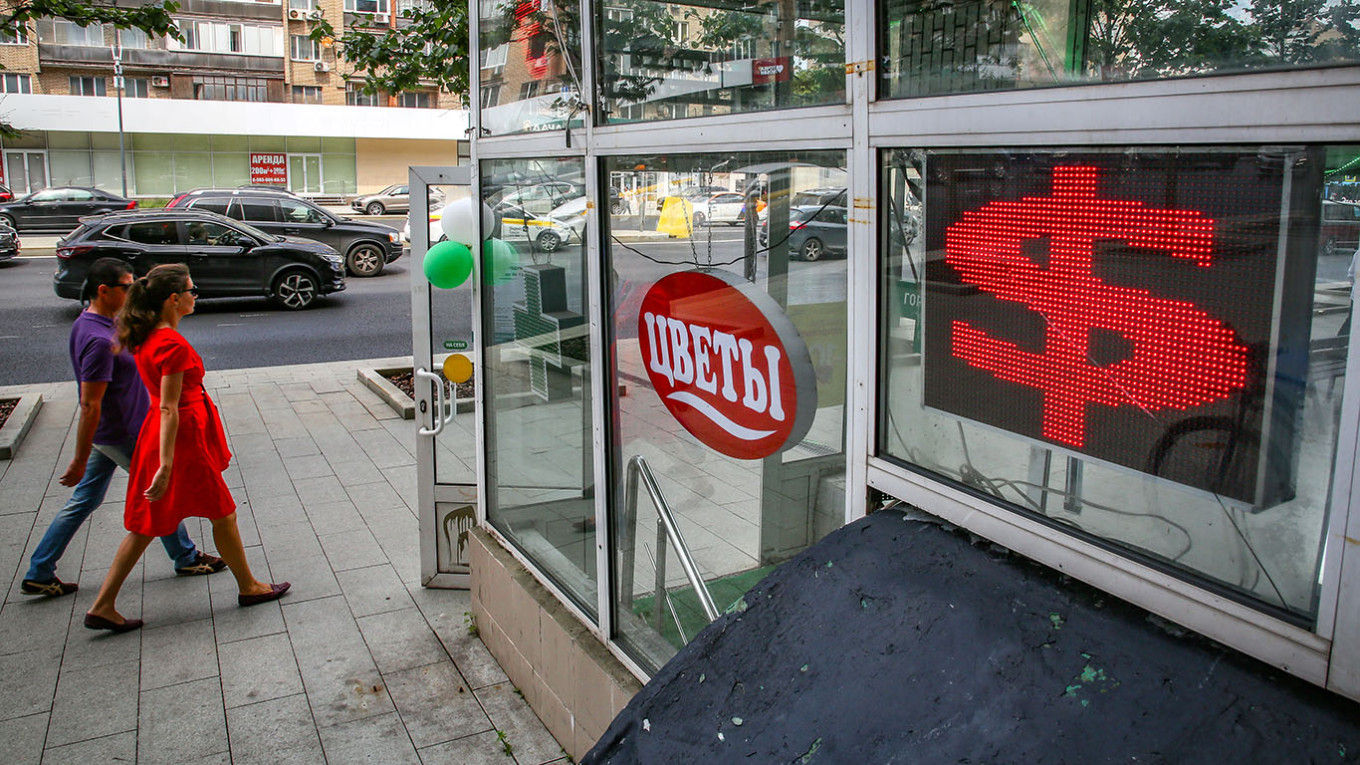Frequent internet shutdowns across Russia have pushed citizens and businesses to increasingly rely on cash, reversing a trend of declining cash circulation earlier this year, according to data released by the Central Bank.
Banks saw monthly cash outflows of about 200 billion rubles ($2.5 billion, according to spot foreign exchange market data published by Reuters) in June and July alone, the Central Bank reported.
“This demand is somewhat higher than in previous years,” the regulator noted, partially attributing the shift to the public and businesses seeking to build up their cash reserves amid temporary internet outages in various regions.
The shutdowns, which started in Moscow during rehearsal periods for the Victory Day parade, have since spread even to regions far from the Ukrainian border following repeated drone attacks.
Local authorities have adopted similar internet restrictions as a precautionary measure.
According to the independent monitoring project Na Svyazi, regional internet access has been disrupted at least 2,830 times since May, with more than 2,000 incidents in July alone.
Many shutdowns were initially partial, affecting some city areas while leaving others connected.
But by late July, several regions were experiencing full mobile internet blackouts lasting for days, such as the Krasnoyarsk region of Siberia, where the internet was down for five consecutive days.
As of Monday, 55 Russian regions were experiencing internet disruptions, 12 of which reported both mobile and wired internet outages.
The Central Bank also linked the growing cash demand to public concerns over recent legal measures targeting payment monitoring. A law passed in April allows banks to restrict ATM cash withdrawals starting in September to combat fraud.
And since June, Russian financial watchdog Rosfinmonitoring has been empowered to freeze bank cards and accounts for 10 to 30 days without court approval if suspicious activity is suspected.
Seasonal factors also play a role, as cash demand typically rises in the summer vacation season. Last year, cash holdings among Russian households fell by 43 billion rubles ($540 million) in June, then rose by 124 billion rubles ($1.5 billion) in July and 18 billion ($226 million) in August.
This year, the month of June alone saw an increase of 185 billion rubles ($2.3 billion) in cash on hand, though cash holdings had declined by 424 billion rubles ($5.3 billion) over the first half of the year.
A Message from The Moscow Times:
Dear readers,
We are facing unprecedented challenges. Russia's Prosecutor General's Office has designated The Moscow Times as an "undesirable" organization, criminalizing our work and putting our staff at risk of prosecution. This follows our earlier unjust labeling as a "foreign agent."
These actions are direct attempts to silence independent journalism in Russia. The authorities claim our work "discredits the decisions of the Russian leadership." We see things differently: we strive to provide accurate, unbiased reporting on Russia.
We, the journalists of The Moscow Times, refuse to be silenced. But to continue our work, we need your help.
Your support, no matter how small, makes a world of difference. If you can, please support us monthly starting from just $2. It's quick to set up, and every contribution makes a significant impact.
By supporting The Moscow Times, you're defending open, independent journalism in the face of repression. Thank you for standing with us.
Remind me later.






